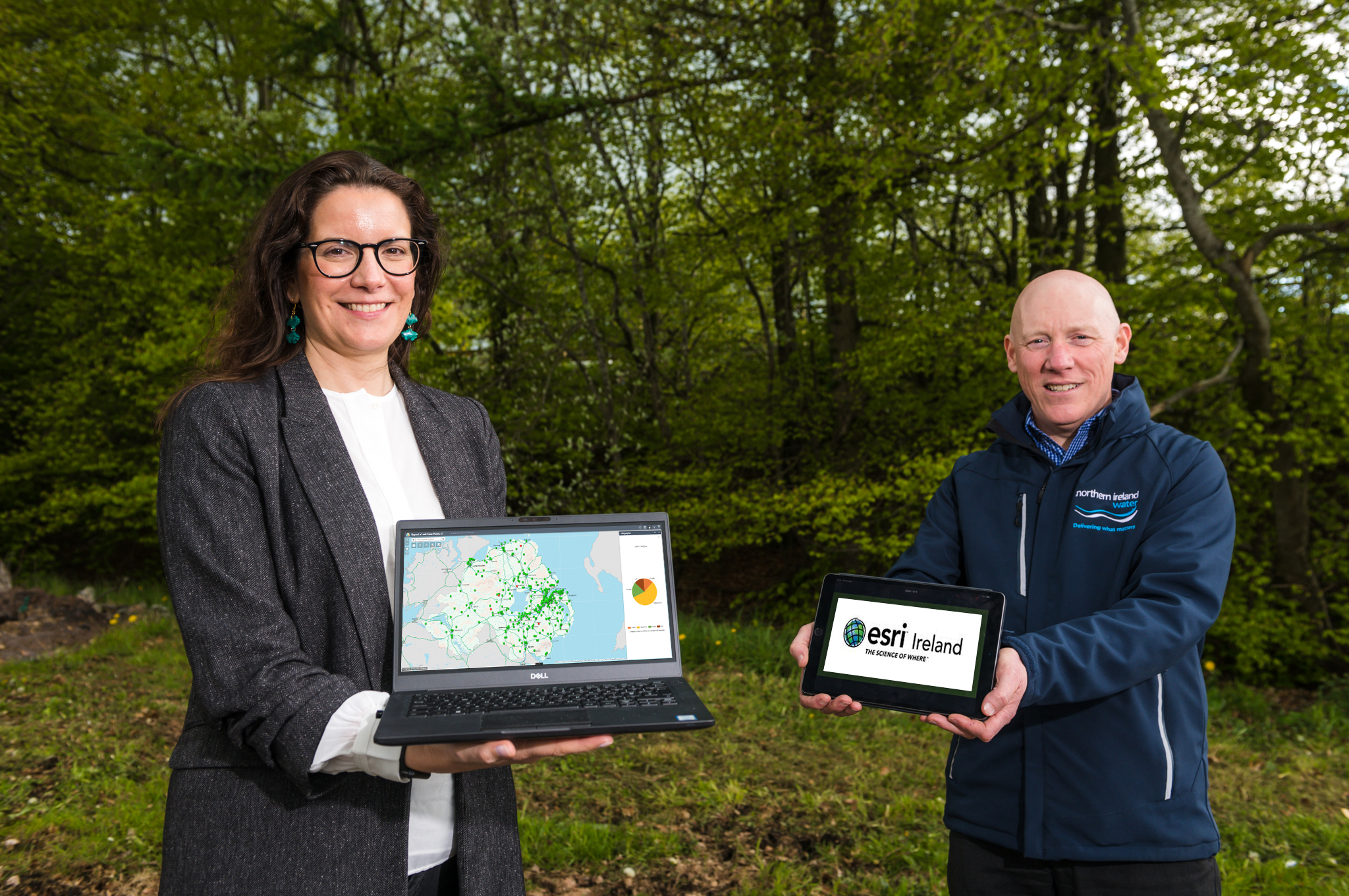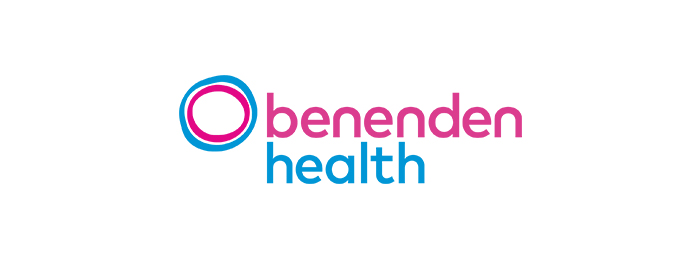Esri Ireland, the market leader in Geographic Information Systems (GIS), today announces that Northern Ireland Water is using its digital mapping platform to transform day-to-day operations across the organisation. NI Water is using Esri’s platform to manage the supply of 560 million litres of clean water and the treatment of 320 million litres of wastewater a day for 1.8 million people across Northern Ireland.
NI Water view Esri’s GIS technology as essential to achieving its organisational objectives as laid out in its 2021 – 2046 strategy. These objectives include enhancing customer service, protecting the natural environment, providing a great place to work, supporting a growing economy and delivering clean and safe water to meet customer needs.
The GIS platform has a central role in all of these areas and the number of employees and contractors using the technology has grown significantly in the last two years. More than 80% of NI Water’s 1,300 staff now use the platform on a regular basis to carry out their everyday work.
NI Water’s employees are using detailed mapping to coordinate and plan essential infrastructure works, such as ensuring adequate sewage and water supply for new builds and housing developments across Northern Ireland. Since 2018, the number of projects dependent on ArcGIS has grown by 160%. The Esri ArcGIS platform is an integral part of NI Water’s Corporate Asset Register which integrates with numerous other enterprise systems necessary to the effective operation of the organisation.
Customers are now far more informed about incidents affecting them by using Esri software. One such example, deployed for public use, is NI Water’s Report a Leak app which utilises Survey 123 and ArcGIS Online technologies giving customers the opportunity to identify the location of a potential leak which is then automatically forwarded to Customer Service and Field Technicians. NI Water is also leveraging the Esri platform to more accurately price and approve customer applications for water and sewage connections, processing 10,500 applications each year.
As well as enhancing responsiveness, the solution has improved business efficiency for NI Water by replacing numerous manual, paper-based processes and eliminating the unnecessary duplication of effort. It has also enhanced user experience for employees working in the field as potential health risks, safety hazards and asset updates can be flagged through a mobile app and be made immediately visible to other personnel using the system including the dedicated data team using ArcGIS for Water Utilities.
Rachel Steenson, Market Engagement Manager, Esri Ireland, said: “Northern Ireland Water has truly embraced the power of GIS across the entire organisation to greatly improve the delivery of vital water services throughout Northern Ireland. Delivering an exceptional customer experience is a core objective in Northern Ireland Water’s long term strategic plan. With the ability to rapidly collect and analyse data through a user-friendly dashboard, the customer service team is well equipped to deliver on this objective, both now and into the future.”
Sean O’Boyle, Asset Information Development Manager, Northern Ireland Water, said: “Our purpose is to provide the people of Northern Ireland with the water for life we all rely on to thrive. Esri’s digital mapping solution has transformed the way we go about delivering on that purpose and its usage across the organisation has grown exponentially over the last two years. New features and tools are constantly coming online, meaning we have the scope to develop and evolve how we utilise the platform. The Esri team and the GIS community are always on hand to advise and support us in implementing new spatial solutions to aid decision making.
“Esri’s location intelligence applications help us to send the right person to the right geographical location with the right tools and equipment to restore customers’ supply as quickly as possible. Ultimately, this is enhancing the level of service we can provide across the entirety of Northern Ireland.”


